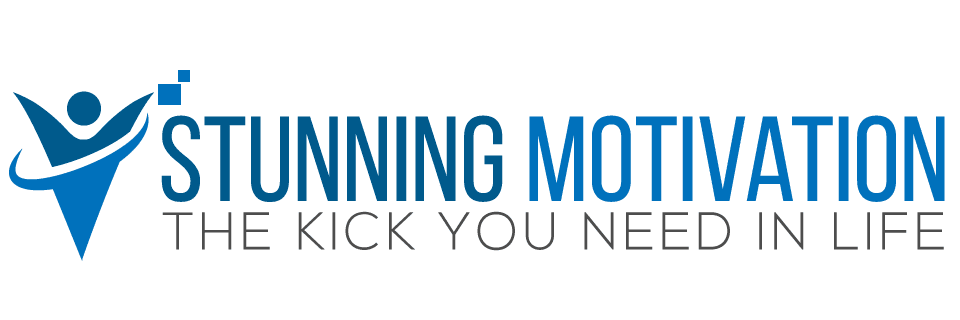Have you decided to become a goal-oriented person?
Being goal-oriented is an empowering personal quality and also a characteristic that will greatly help you in your life.
Regardless of whether you are working for someone else as an employee or you are running your own business, becoming goal-oriented makes you more productive, it increases your consciousness for what you want to achieve, and helps you achieve the success you want in life.
What Does It Mean to be Goal Oriented?
You see, when it comes to achieving goals, most people lack one important key ingredient for success – they are not being goal-oriented enough.
Meaning, they are not being conscious of their goals, they don’t take enough action, they are not committed to their goals, and they lack the focus they need to reach their goals.
In short, if you want to achieve your goals, you must develop the characteristic of being goal-oriented.
Extraordinary people like Steve Jobs, Elon Musk, Kobe Bryant, Mark Cuban, Tiger Woods, Michael Jordan, etc., are goal-oriented people.
They know exactly what they want, and they constantly orient themselves to get there.
And this is what you must do too. Below are the 7 daily habits you should practice becoming more conscious and aware of your goals…
1. Be Conscious of Your Goals
This is the first step you need to take to make sure you achieve your goals. Most people fail to achieve their goals because they lack the consciousness for their goals.
They are pumped and motivated when they first begin with a goal. But after a while, their motivation faded, and they started to lose their momentum.
They then got distracted by other activities and they slowly forget about their goals. Which they will eventually lose hope and give up on their goals.
Most goals don’t go down with a loud ‘bang’. Most goals go down by sinking slowly.
Think about when you first set a goal. Regardless of whether it is to build a profitable online business or to lose weight. When you first began, you were highly motivated, right?
So, what happened after a month? Do you still feel the drive and the motivation?
No, most people quit and give up because they lost track and momentum. They got distracted by other stuff in life and in the end, never do anything about their goals.
This is why you want to stay conscious of your goals.
In other words, you want to keep your goals in your head, at all times.
Do you know Richard Branson, the billionaire and founder of Virgin Group, always carries a notebook with him?
He said in his blog that he keeps his to-do list with him at all times. He wanted to remind himself of what is important to him so that he can consciously work on them.
These were the words from Sir Branson:
“I have always lived my life by making lists. These vary from lists of people to call, lists of ideas, lists of companies to set up, lists of people who can make things happen. I also have lists of topics to blog about, lists of tweets to send, and lists of upcoming plans.”
Whatever that is out of your sight will be out of your mind. And whatever that is out of your mind will be forgotten.
Branson then said:
“Each day I work through these lists. By ticking off each task, my ideas take shape and plans move forward.”
That is why it is so crucial to keep an eye on your goals. You want to be aware and conscious of your priorities (goals) in life.
So, how do you develop the habit of being conscious of your goals? Here are a couple of suggestions…
- Spend time thinking about your goals.
- Visualize your success.
- Practice affirmations.
- Plan your goals and work on them.
- Continue to read on to discover more…
2. Make Time for Planning
The second goal-oriented habit is to make time for planning.
Think about it, when was the last time you sit down and truly plan for your future? Most people don’t plan for their future. They’d spend more time planning their weekend and dinner more than they spend time planning their future.
Ever wonder why most people are living in mediocrity now? So, don’t be like most people.
Once you know what you want to achieve out of your life, it is time to make time for planning.
By the way, if you don’t know how to set goals, you should definitely check out my ultimate guide here:
Ultimate Goal Setting Guide: How to Set Goals and Achieve Them
Yes, actively and proactively make time for planning.
When you plan your goals and what you need to do to get there, you are sending a clear message to your brain, telling yourself what is important to you and what you should be focusing on.
Imagine if you have no idea what to do during the weekend, how will you spend your time?
Most likely, you are going to wake up late. And since you don’t have a plan, you are going to spend most time checking Facebook and Instagram, and you may even spend an hour or two watching YouTube and Netflix.
But when you have a plan and when you know what you need to do, you will spend your time differently.
You become proactive instead of being reactive.
You will spend your time because you know your objective. This is why planning is so important.
And you want to spend time actively plan your day.
I do my planning most Sunday nights. I will review my goals and write down my plan for the coming week. And each morning, I will also review my action commitments and get an idea of how my day will look like.
I have been doing this for years. And I discovered that one reason I’m able to produce so much blog content and being so consistent with my blog is my planning habit.
If you want to be productive, create real results, and achieve your goals, make sure you spend time planning. That’s a daily habit you should develop to become more goal-oriented.
Check out these guides:
- 10 Tips How to Plan Your Day and Live a More Successful Life
- How to Turn Your Goals into Actionable Plans
- How to Plan Your Week: 10 Effective Tips to be More Productive
3. Schedule Your Action Commitments
The next goal-oriented habit you want to adopt is this – schedule your action commitments.
This means you want to write down your action steps and then schedule them into your calendar or planner.
According to this article from James Clear, there was research conducted by a group of researchers to build better habits.
The researchers recruited 248 people to build better exercise habits for 2 weeks. And the subjects were divided into 3 groups…
Group #1 was the control group. They were asked to track how often they exercised.
Group #2 was the ‘motivation’ group. They were given some materials to read about the benefits of exercise. And like group #1, they were required to track how often they exercised.
Group #3 was asked to complete this sentence: “During the next week, I will partake in at least 20 minutes of vigorous exercise on [DAY] at [TIME] in [PLACE].”
After 2 weeks, the researchers did a follow-up study. And this was what they discovered…
- Only 38% of people in Group #1 exercised.
- Only 35% of people in Group #2 exercised.
- A staggering 91% of people in Group #3 exercised!
Do you see a big difference?
When you write down your action commitment, like what the participants in Group #3 did, you will greatly increase your chances of taking action.
Meaning, if you want to stick to your plan, work on your goal, and take consistent action, you must schedule your action steps.
You can follow the format from the research and write down what you need to do to achieve your goal in this manner:
“I will [BEHAVIOR] at [TIME] in [LOCATION].”
When you write down your action steps in this manner, you are giving a clear and specific instruction to your mind as to what you need to do, by when, and where.
In other words, you are setting yourself up to win when you schedule your action steps this way. You will become more goal-oriented.
4. Track and Review Your Progress
Next, you want to track and review your progress on a consistent basis. I suggest you track and review your progress at least weekly.
Why do you want to do tracking?
First, it increases your consciousness for your goals. When you track, you are actively engaging with your goals. You are being aware of what you want to achieve.
Second, when you review your progress, you can adjust your plan. You know what is working and what is not.
And you can get rid of activities that are not helping you produce the results you want, and do more of what is getting you the results.
If you don’t measure and track, you will never know if what you do is getting you the results you desire.
It works just like a GPS. You want to constantly track your location (progress) so that you can pivot and make the right adjustment to get to your destination.
As I said before, I do my review mostly on Sunday night. I will go through my goals and see if I’m on track for my goals.
Most companies and organizations have monthly or quarterly meetings to track their performance too.
You want to know if you are taking the right actions and if you are moving in the right direction. This is why tracking and reviewing your progress is important. It will surely make you become much more goal-oriented.
5. Hold Yourself Accountable
Yes, goal-oriented people are highly accountable people for their goals. They are serious about their goals, and they are absolutely committed.
Regardless of whether you hold yourself accountable or if you get someone to hold you accountable, it doesn’t really matter.
There was a study conducted by Dr. Gail Matthews from the Dominican University of California. Dr. Gail and her team discovered that people who shared their weekly progress reports with a friend tend to have a higher success rate for achieving their goals.
When you are required to share your weekly progress report with someone, you know there is someone there who will hold you accountable.
And that means less procrastination. You don’t delay your work as much because someone is waiting for your progress report.
If you notice, most successful businesses started with at least 2 or more people…
- Steve Jobs started Apple with his good friend, Steve Wozniak.
- Walt Disney started with his brother, Roy Disney.
- Elon Musk started Zip2 with his brother, Kimbal Musk.
- Mark Zuckerberg started Facebook with a few other friends and students too.
As you can see, we all need partners and other people to support us, guide us, encourage us, and hold us accountable.
If you try to do everything on your own, it will be difficult. There is no one there to guide you, to encourage you when things go bad, and there will be no one to hold you accountable.
So, if you want to become a goal-oriented person, you must get yourself an accountability partner, and hold each other accountable for success.
6. Take Breaks
Yes, being goal-oriented doesn’t mean you have to work 24/7. It doesn’t mean it’s all work and no play.
There will be times when you need to slow down, stop, and take a break.
Why? Simple, nobody can work 24/7 and no one can hustle all year long. If you do that, you will suffer burnout.
Being goal-oriented means you are aware of your goals, and it doesn’t mean you can’t take breaks.
Taking short breaks from time to time is important. As I wrote in one of my guides, The Importance of Taking a Short Break According to Research:
Our willpower is like a muscle. And similar to our bodies, our willpower can get fatigued when we use it over and over again, without taking any break.
Your willpower can also be illustrated as the battery level on your phone. You fully charged it in the morning. And as you use your phone to send messages, to check email, and to play games, you use the battery power.
As you go through the day, the battery power will decrease, and eventually, you need to charge it again.
And if you don’t charge it? Well, your phone will be out of battery and you can’t use it any until you recharge it.
This metaphor perfectly describes how our willpower works. In the morning, usually, your willpower is at its peak after a good night’s sleep. And as you wake up and go through the day, you make decisions, you think, and you use your willpower to act.
Your willpower then slowly depletes. And after some time, when your willpower is low, you find it extremely difficult to concentrate on your work.
You are then easily distracted and you can’t focus on your work.
What if you don’t stop and continue to work and to use your willpower? At a point, you may suffer decision fatigue and you can’t focus at all.
And if you keep going on without taking a break, you may suffer burnout.
This is why taking breaks is important.
You recharge both your mental and physical energies when you take breaks. You feel refreshed and fully charged after a break. And after the break, you become more productive and able to focus better.
So, plan your breaks. Schedule off time and playtime into your calendar. If you have no idea how to plan for your breaks, read this: 13 Creative Ways How to Take Short Breaks During the Day.
7. Focus on Progress, Not Results
Now, I know this may sound contradicting, but this is what being goal-oriented is all about – focusing on the progress and not the results/outcomes.
Yes, you want to achieve success, which is the result, but at the same time, you want to focus on the progress, or the process, not the result.
Why? Because when you focus on the results and when you don’t see the results, you will feel dejected, and you will lose your motivation.
Imagine your goal is to lose 10 pounds. And you go to the gym 3 times a week. After 2 weeks, you stand on the weighing machine, and you see no changes to your weight.
How does that make you feel? Not good.
You started to doubt yourself and you started to lose the motivation to exercise in the gym. The following week, you only exercised once. And again, you don’t see yourself losing the additional fat.
And so, you completely give up on the plan. You quit your goal.
Does this sound familiar?
This is why you don’t want to focus on the results, instead, you want to focus on the progress. Read this: How to Measure Your Progress to Effectively Achieve Your Goals
Meaning, once you have identified your goal or the result you want, like losing 10 pounds, the next thing you want to do is to focus on your progress.
Focus on exercising and diet. Focus on your process of how you get there. You don’t have to focus so much on the goal anymore because, at this point, your process is the key that will get you to the result you want.
As long as you make progress and hit the gym, you will lose the additional fat and get back in shape.
So, focus on the process.
It is the same with blogging. I have blogging goals. I know what I want to achieve out of my blogs. But I don’t focus on the results that I want.
Yes, I will think about them, but when it comes to taking action, I focus on the process. I work on creating and publishing content.
And as long as I keep publishing, I will reach my goal. Do you get that?
This is what it means to be goal-oriented.
Focus on the process, not the results. Because you don’t want to lose your momentum whenever you don’t see yourself getting the results you want.
And at the same time, when you work on the process, the results will come automatically.
Most people fail to achieve their goals because they focus too much on the results, and they neglect the process.
- They check their website traffic every hour, but they don’t work on their websites.
- They weigh themselves every day, but they don’t exercise and diet according to their plan.
- They check the stock market every day, but they don’t work on saving and investing their money.
Therefore, focus on the process because the process will get you to your goals.
Here’s a guide you should check out: How to Stop Feeling Overwhelmed and Start Making Progress
Conclusion
These are some of the daily habits you can develop to become a goal-oriented person.
Do you think that it is important to become goal-oriented?
Leave your comment below and let me know. I hope this guide is helpful for you. And if you like this guide, make sure you share it with people who need it.











Thanks, those are good tips! Setting a goal is easy, but achieving a goal is a challenge.
Hey Riley, that’s right, setting goal is easy and it’s just the first step. The real challenge comes after you set the goal – what you do every day to make progress – that truly counts. 🙂